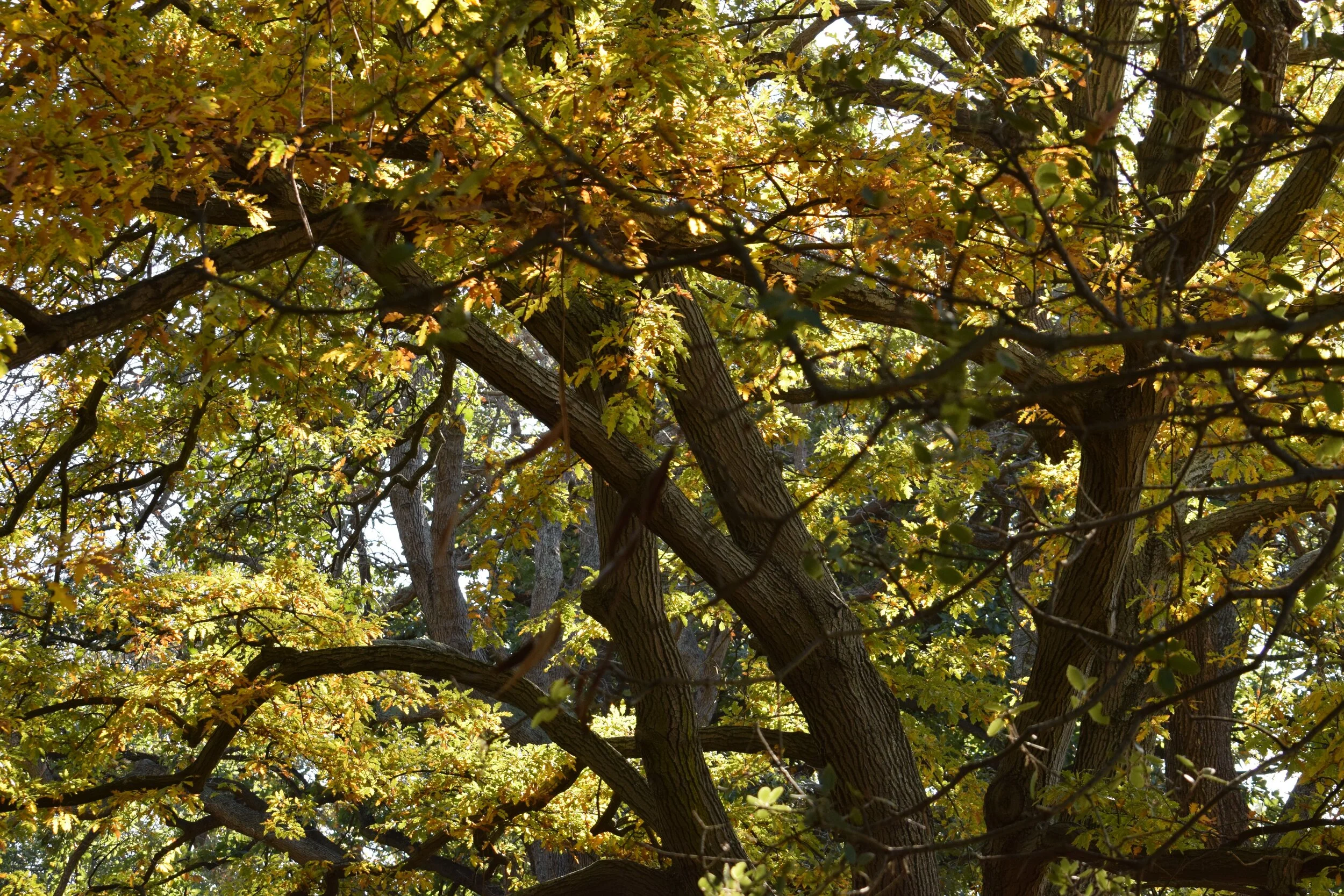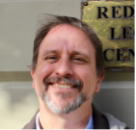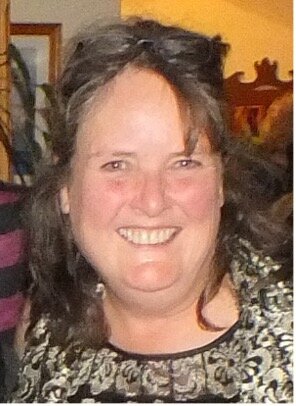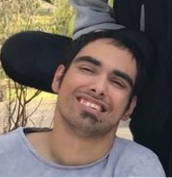Alex Birnie, Debbie Dorfan, Finn O’Keefe, Sue Harris and Troy Van Heer share their experience using The Circle Way through the Cerebral Palsy Support Network’s Tribal Wisdom Project Learning Journey.
Tribal Wisdom Project - Learning Journey
The Cerebral Palsy Support Network (CPSN) in Melbourne, Australia provides services and support to over 1800 people including individuals with cerebral palsy (CP), their families, and friends. In line with contemporary management approaches, and to strengthen its network capacity and capability, the Organization sought to ensure active representation of people with lived experience of CP at all levels of governance, planning, and service delivery.
In July 2020 an innovative pilot project known as Tribal Wisdom Learning Journey was established. A network of 18 adults with CP were invited to participate in a 15-week skills development and shared experience activity, which was delivered online in 90-minute weekly group sessions. The Circle Way was considered an ideal tool for this project as it provided an opportunity for participants to learn AND apply their new skills in the same setting. Seven sessions of The Circle Way were delivered fortnightly, and a Brains Trust consultation group was facilitated on the alternate weeks. This pattern provided space for participants to digest and practice key elements learned in The Circle Way sessions and simultaneously provide valuable stakeholder/consumer advice on various CPSN governance and planning issues.
Although initially it was anticipated that graduates from the Learning Journey would primarily act as peer connectors and mentors to others in the CP community, the scope of the Project became far broader, resulting in professional employment for some members, and strong social connections, wider networking opportunities and a greater sense of self worth for all involved. Participants from the first Learning Journey were invited back to co-host sections of the next Learning Journey, where their skill set, and application became multi layered as they passed their knowledge onto others and applied the principles of Circle Way in many aspects of their personal and professional lives.
Circle Way has become a vital and relevant element of the working life at CPSN. It contains a tool box of practical methods to promote participatory leadership, ensures voices of all stakeholders are heard and respected, and has equipped people with Cerebral Palsy to take a pro-active and consumer driven role to improve the lived experience for others with CP.
Enjoy this video of Alex, Debbie, Finn, Sue and Troy sharing their experience using The Circle Way through the Cerebral Palsy Support Network’s Tribal Wisdom Project Learning Journey. A transcript of the video is included below.
Sue Harris:
So, many adults with cerebral palsy, especially those mildly effected, have little or no contact with others who have the same lived experience in their adult lives. And I have mild cerebral palsy, and was appointed to manage a pilot project known as the Tribal Wisdom to develop a group of adults with CP who already were equipped with skills, knowledge, and confidence to tell and harvest stories, and create a networked community in order to help others understand the lived experience of cerebral palsy. Whilst the original aim was to better equip these participants to confidently connect with and support others in the community through a shared lived experience, what actually took us by surprise was the need for connectivity within our own group of participants. Just watching Tuesday Ryan Hart's video last night, I could really relate to her description of unequal distribution of power in groups, and the life of someone with CP is constant wave of disempowerment.
Sue Harris:
Through the learning journey, the participants grew in skills as they took on roles of hosting check-in and check-out, shared responsibilities in breakout rooms, told and harvested stories, and gained a better understanding of the responsibilities in circle and participatory leadership. We ran this program in six sessions, held fortnightly, and the middle weeks we actually ran a Brains Trust advisory group of people with lived experience back to the organization, and that gave the perfect opportunity for the participants to practice these techniques in the weeks between. And that's the really important thing, get an opportunity to practice and that's what they did, and they did an amazing job. Through the gentle and inclusive leadership, they found a safe space to share personal and sensitive information. The chattier members, moi, learnt to listen and quieter members were given an adequate time to speak, and everyone felt heard. This validated the process for the participants and brought purpose to applying the newly acquired skills in work, social and personal settings. In this short video, you'll hear how participating in The Circle Way has impacted on some of our tribe. So thanks Penny, if you can roll the tape.
Troy Van Heer:
My name is Troy Van Heer, and I am a client of CPSN, and a member of the Tribal Wisdom group.
Finn O’Keefe:
My name's Finn and I came to join the CPSN Tribal Wisdom group actually through a bit of inquiry on my part. I was on an advisory committee for something called the Cerebral Palsy Info Project, and part of what I was looking for on that group was information about projects that involved peer-to-peer connections with people with cerebral palsy, because it was something as an adult with CP that I just wasn't able to find. So I was really interested to know, was such a thing out there in Australia for adults with CP to connect? And so, I'd had some dealings in the past with CPSN and I just randomly happened to see a mention of this pilot project called the Tribal Wisdom Project, and I went, "A-ha, this is exactly what I've been looking for." So I rang up CPSN and was put in touch with the amazing Sue who had a chat to me for about 30 minutes about what the project was, and by the end of that conversation, not only had I found out the existence of this project, which I was delighted with, I'd been invited to be a participant.
Debbie Dorfan:
Hi, I'm Debbie. I'm going to talk about my experience with Circle Way in doing the Tribal Wisdom training with CPSN. I was invited to do the Tribal Wisdom training with CPSN after I contacted the organization to find out about peer support networks for adults with CP in Melbourne. And this was followed up when they started the Tribal Wisdom Group, because that is part of the reason of doing this training, using Tribal Wisdom to give us the skills and confidence to have conversations with peers who've got cerebral palsy who want to connect with other similar adults with similar experience. It was a really incredibly worthwhile opportunity, to the extent that I put my hand up to help co-host the second Tribal Wisdom group that's currently running.
Debbie Dorfan:
The course was structured, one week was Circle Way training and the other week was what they called Brains Trust, so providing lived experience, important knowledge into the strategic plan and other areas that the organization felt needed input. This was great because it gave us an opportunity to practice what we learned in our Circle Way training, and take that experience beyond the group we were in and into individual conversations.
Alex Birnie:
Hi, I'm Alex, and I work as a client liaison coordinator at CPSN. I was first introduced to the Circle Way in August last year, when I became part of the Tribal Wisdom clan at CPSN. As a participant in the first Circle Way, I started off hosting some check-ins, check-outs and Acknowledgement of Country. I was invited back to co-host a second session of Circle Way, so I'm gaining more experience helping lead a new group and participating in discussions around content and design of sessions.
Alex Birnie:
I think The Circle Way is gentle, inclusive leadership which encourages everyone to have a go. It has given me more confidence, helped me become a better listener, and I've gained new skills in hosting. My job requires me to have person-to-person contact, to help participants get the most out of the Innovative Choices program. Developing skills through The Circle Way has allowed me to be a more efficient support to my participants. I also volunteer in community radio and have found that what I've learned in the Art of Hosting has helped me become a more confident presenter. Being involved in The Circle Way has been a great experience for me.
Troy Van Heer:
So the Tribal Wisdom group allowed me to strengthen my bond and friendship with people, because it taught me active listening skills. And it's really good to use those skills 'cause it allows you to, as I said, strengthen bonds and friendships and be able to help people sort things out, and be there to support them and problem solve with them.
Debbie Dorfan:
What The Circle Way training gave me was it allowed me to participate in the group and step into the different Circle Way roles in a very non-threatening, supportive way as I felt ready. So, taking on one role at a time, be that doing check-in or check-out, or Acknowledgement of Country, or any role within the practice, which was a really lovely way of building confidence without trying too hard. And that every week, that every time I helped host or I took on a role, I built my confidence and developed my leadership skills, speaking skills, participation skills, to the point that the second round of Tribal Wisdom, I'm actually part of a hosting team that are running it.
Finn O’Keefe:
So, the process of engaging with a group of strangers who I've never met before, using the framework that The Circle Way offers, has actually been really, really interesting and quite subtle in its effects, I think. I think that when we started as a group, there's a bit of an element of, you know, what's going on here, what are these processes? There's a lot of jargon, and there's roles that the circle kind of assigns and processes. So, we do things like we check-in at the start of each session, where there'll be a brief exercise to sort of allow people to, I guess, reset from the day that they've had and join the circle with a clear head and with a clear focus. And, you know, one of the main frameworks that underpins the circle methodology is having everybody join the group with clear intention and having that intention in mind when we start conversations, and also being very attentive to the way that we listen. So, being mindful of why we're there, and then listening with intention.
Troy Van Heer:
We did check-in and check-out on a few occasions, which allows us to reflect on what we've learned and the insight that we've gained from other people. And that just allows us to also improve on our own lives personally in the future, so it's really good like that.
Finn O’Keefe:
I think what the circle process allowed us to do was in a sort of very gentle way to become quite comfortable with each other, in terms of really, you know, in a democratic way, we all got to say our piece every week. That's another thing that the circle does, it talks about a very sort of equalizing approach to a conversation. So, it's not like you've got a chair chairing a meeting who's directing the whole flow of the conversation. Every single person will get their turn to say something. And, you know, one of the functions of the circle is to encourage the maybe quieter members of the group to speak up. And I think that you can see over time the power of that approach, because I would definitely agree that everybody in our Tribal Wisdom circle has certainly come to the table and shared a lot of quite personal information that it may not be that easy for people to do.
Finn O’Keefe:
I'm a very good listener, I like to think I am. I think the circle's sort of challenged me to be a better listener, to perform that role better, but I don't necessarily like opening up to strangers. I can find that a bit confronting, but I did that almost straight away in this process. So, you know, I think that's definitely a very powerful aspect to this methodology.
Finn O’Keefe:
It's changed the way that I approach conversations with other people in terms of active listening, but also resisting the temptation to bring all the answers to a conversation. One of the things that we've discussed many times is often if somebody has a problem that needs solving, they probably know the answer within themselves. And to be a really good listener, your job as someone in a conversation like that is to encourage that person to voice the solution themselves. It's been quite an emotional journey, I think, for all of us as participants. It's also just made me think quite deeply about how I approach different aspects of my own life, and also how I interact with people. So, it's something that I think will have a lot of application, both for my personal development, but I can see it being very relevant in a sort of a work sense as well, and having more effective conversations with colleagues, as well as with friends and peers.
Debbie Dorfan:
I think using The Circle Way as a means of doing the relationship building and peer mentoring at CPSN has enabled the people that are in both groups, which it's been a difficult time because it's been online, which I don't think would've, you know, it's not a space that people have been used to being in, but I think despite that, the skills that it brings, that it's given people have enabled the groups to become cohesive and trusting, and quite solid in a very short space of time, despite it being online.
Finn O’Keefe:
CPSN's decision to use The Circle Way methodology is a really powerful tool to get people with cerebral palsy to connect with each other and share their own experiences, to learn from each other, and also to be very candid with CPSN as a service provider about what works and what doesn't work for someone with cerebral palsy. So, within this Tribal Wisdom framework, we're doing two things: We're actually learning about The Circle Way, and we're being coached to be a Circle Way practitioner, and to start conversations with other people, to start meaningful conversations with other people. But we're also encouraged to give quite direct feedback about organizational processes and the way that services are offered to clients by CPSN. And so I think as an investigative tool, it's produced some really great results. I think we've been quite happy to be very upfront and direct about what we like and don't like about the organization's approach, as well as sharing and forging a connection with each other as peers.
Troy Van Heer:
It is really good for CPSN, because it allows them to provide more constructive support and guide people in the right direction with whatever they want assistance with. And it's also really good for us because we're involved in the whole situation. We participate. And it gives us an opportunity to have a voice, which is really fantastic.
Sue Harris:
Thanks Pen, just a couple of points just to finish up with very quickly. I think I might have explained it. I've worked as a tech host on two of these learning journeys that we've run at CPSN, and I've got to say that you do miss a lot of content because your responsibility's to ensure the smooth online process, particularly in this new wave of Zoom stuff, and you don't get to play in breakout rooms. So it's really valuable to get the opportunity to just be a participant, which is why I'm here, and I'd strongly advocate anybody who is involved in hosting, running, tech hosting, whatever these Circle Way activities, go back and have a play with people like Amanda and Penny and Jan, whoever, because it's just nice to come back and be nurtured in the process, as well. CPSN's about people and our clients are our center, and our job is to make their lives as empowering and as fulfilling as possible.
And by applying the components of Circle Way in our work, in our work life, it helps us to be person-centered and more effective in our communication styles, and gives us a better understanding of others. Our CEO has also done The Circle Way and plans to have all staff at CPSN complete Circle Way training over the next 18 months. And I'm very proud to say that our tribe members are actually leading this process, so it's just been absolutely wonderful. And as Troy so perfectly summed up at the end, in Circle Way we're fully involved and it gives us an opportunity to have a voice, and thanks for listening to mine. Thank you.
Photos from left to right:
Alex Birnie works a Client Liaison Coordinator for people with Cerebral Palsy. She is passionate about her involvement with her local choir and community radio, and loves watching Australian football and tennis.
Debbie Dorfan is a people person who works in Human Resources. She loves socialising, especially around good food, with her husband, adult children and good friends. She is passionate about sharing her disability journey with others and connecting in a meaningful way to bring about positive change.
Finn O’Keefe works in communications for a community legal centre and is passionate about the inclusion of people with disability. In his spare time, Finn is a volunteer board director of Australia’s largest LGBTIQ+ film festival and is working with organisations to help raise awareness about the needs of adults living with cerebral palsy. Finn has mild CP and lives with his husband in New South Wales.
Sue Harris currently coordinates the Tribal Wisdom Project and is passionate about horses, music and empowering others with disabilities.
Troy Van Heer is an advocate for others with disabilities and spends his free time pursuing his passions of IT and music.
Video Producer Penny Hamilton, also involved in hosting the Cerebral Palsy Support Network’s Tribal Wisdom Project Learning Journey
Penny Hamilton, based in Brisbane, Australia, works with circle-based methodologies to engage people in creative ways to meet, think together, ignite leadership, make collective decisions, innovate and find solutions that move groups toward their vision. She works alongside leadership, community members, people with disability, and teams to unlock their collective wisdom and step into their personal leadership. She has contributed to this body of work as a process designer and host, teacher and coach of participatory processes including The Circle Way, World Café, Open Space Technology, and Art of Hosting Conversations that Matter.
